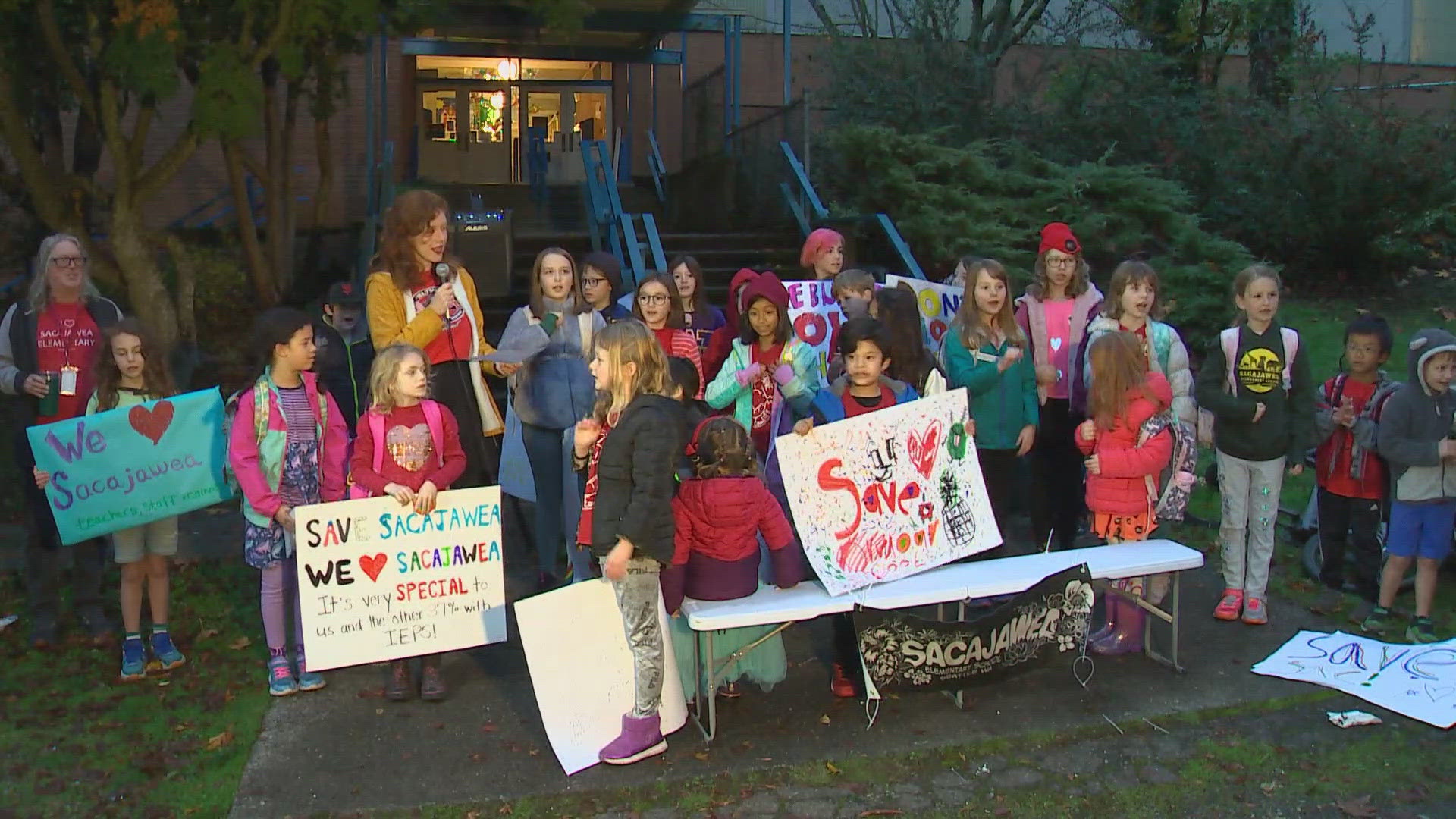SEATTLE — Seattle Public Schools (SPS) is hosting a series of virtual meetings to pitch voters on nearly $2.5 billion worth of levy renewals that, if approved by the school board, would be placed on the February 2025 ballot.
The district held its second online session on Wednesday, which included a presentation outlining how the funding would be spent.
"In short, [these] help provide a higher quality education than the state would provide otherwise, without the levies. It provides some additional resources needed by the community," said Assistant Superintendent of Finance Kurt Buttleman.
The first levy is the three-year, $673 million Educational Programs & Operations Levy (EP&O) renewal, which SPS says provides day-to-day operational costs not fully funded by the state. It includes staffing, special education and extracurricular activities. It would cost homeowners between 65 and 70 cents per $1,000 of assessed home value, according to the district.
The other is the six-year, $1.8 billion Building Excellence VI Capital Levy renewal, which the district describes as the main source of funding for safety and security, technology and building needs. It would cost homeowners between 79 and 93 cents per $1,000 of assessed home value, the district said.
"What we're talking about here is keeping the lights on for the district's backbone; data centers, digital resources, anything that has to do with the curriculum," said Assistant Superintendent of Technology and Optimization Carl Del Valle. "If the levy doesn't pass, we're going to be in quite a bit of a [tricky situation]."
The SPS Board of Education will decide on Nov. 19 if the levy plans will be placed on the ballot for voters. If passed, the levies would remain in effect for three years, beginning in 2025.
"The money collected from local, voter approved levies stays in our district to support our students," SPS wrote on its website. "These levies will not resolve the district's budget shortfall; they renew current funding to maintain essential school operations, provide special education services, support classroom technology, enhance school safety, and fund the renovation and repair of school facilities."
The district is currently facing an estimated $94 million budget deficit, which has resulted in plans to close four elementary schools.
"This situation is unfortunately not unique. Many other districts across the state are struggling with these financial issues," Bottleman said.
Another online community meeting to discuss the levy is scheduled for 6:30 p.m. Nov. 7.
The presentation shared during all meetings can be viewed by clicking here.

